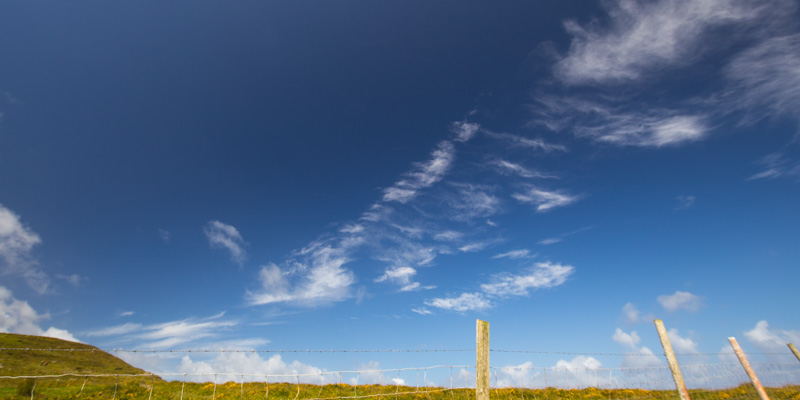Should you be using filters?
If you buy a camera in a shop, the first accessory they will try to sell you is a UV filter "to protect your lens". What does it actually do, and do you really need one? And what about polarising filters and neutral density filters. When do you need to start investing?
1. Do you need a UV filter?
In the days of film, an ultra violet filter stopped UV rays adding a blue tint to your images in situations with too much UV light. But digital sensors have their own ways of coping with this interference, so no, you don't need a UV filter simply to filter out UV light.
But many people like to use a UV filter (which is just a clear piece of glass) to protect their lens against dust, scratches and damage.
Yes, it will do this. But you are putting a (relatively) cheap piece of glass in front of an expensive lens. Your lens is now only as good as the cheap piece of glass.
I can't tell you one way or the other what you should do. I don't use UV filters on any of my lenses. But I am very, very careful with my kit, and I always leave the lens hood on as a first defence against accidents. Having said that, I've only dropped my camera twice in my life, and once was into the sea - which no filter will protect against.
But if the thought of scratching your lens and having to send it off for repair or replacement fills you with dread, you might be better off knowing you've got an extra layer of protection.
2. What does a polarising filter do?
The bottom line is that a polarising filter makes the colours in your photo more vibrant. (If you want to learn more about the physics behind how it does it, read this article: Wikipedia - Polarising filter.)
A polarising filter is most often used to darken and add colour to a blue sky:
Without polarising filter
With polarising filter
It also generally brightens and adds a bit of pop to a dull image:
Without polarising filter
With polarising filter - note the brighter greens
A polarising filter also reduces reflections significantly. Notice, in the second image above, how the water no longer reflects the grey sky.
3. Neutral density filter
This filter baffles many beginners. All it does is reduce the amount of light hitting the sensor. It's just a big piece of dark, neutrally coloured, expensive glass:
You would use it when your primary creative impulse is to have a very long shutter speed - many seconds or even minutes. Without the ND filter, there would be too much light and your image would quickly wash out to pure white. With the filter, it's like shooting in the evening even though it's the middle of the day. 6 stop ND filters made by Lee are called "Little Stoppers", and 10 stop ones are called "Big Stoppers". They are rectangular, and you need to buy a separate filter holder, plus an adaptor for every lens thread size you want to use it with.
ND filters are very expensive, because they have to be crafted so as not to introduce any colour casts or tints into the final image. With the extra 6 or 10 stops of artificial darkness, you can use shutter speeds of many seconds:
Shutter speed 1/40th second - look at the uninteresting brown sea
Shutter speed 30 sec: the sea has been blurred by capturing the ebb and flow of the water over half a minute
4. Graduated ND filters
These are simply half ND filter, half clear glass. You would use one when the dynamic range of your image is too great to capture in one image (ie. when the difference between the darks and the lights is bigger than your sensor can deal with). Typically this happens when you have a bright sky and a darker landscape. You use the graduated ND filter lined up with the horizon, and it evens out the contrast in the whole image.
Without graduated ND filter
With graduated ND filter - notice that the exposure in the foreground stays the same, but the sky is darker
Free online beginner's photography workshop
Join my flagship photography workshop, A Year With My Camera, here. Get off auto mode in 6 weeks, guaranteed:











